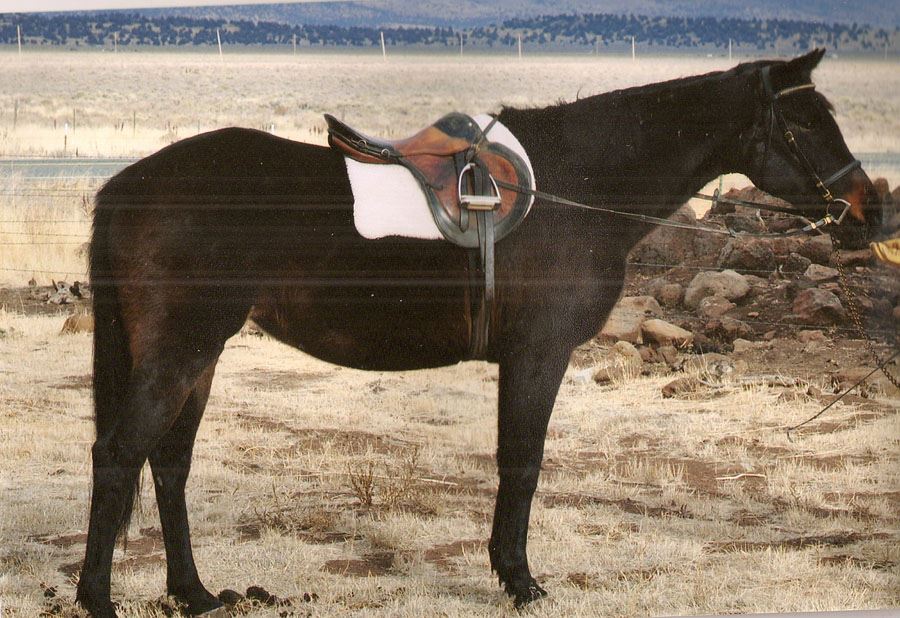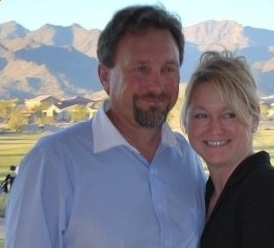Lawsuit Filed in Old San Marcos Road Horse Deaths
Two Show Horses Were Killed and Five More Were Injured in the March 28 Accident

The owner of seven show horses hurt and killed when their trailer nearly overturned along Old San Marcos Road in March has sued the trailer driver and his hauling company for more than $1 million in damages.
Shan de Wey, a sixth-generation horse breeder and trainer from Termo, California, claims that Mathew Gillispie of Triple-AC-Ranch in Arizona broke their contract when he picked up an eighth horse without her knowledge, took a 260-mile detour to drop it off in Santa Barbara, then drove too fast and failed to navigate one of Old San Marcos Road’s hairpin turns that caused the trailer to violently list to one side. Two of de Wey’s horses died as a result of the accident, and the rest were injured, some severely. The eighth horse escaped unhurt.
In the lawsuit filed June 4 in Santa Barbara Superior Court, de Wey’s attorneys state that she hired Gillispie to drive her horses — all registered Thoroughbreds, Warmbloods, or American Paint Horses — from Termo to Laveen, Arizona, where they were to be bred or sold. The two reportedly discussed Gillispie’s route through Reno and Nevada on the way to Laveen, and de Wey was promised her horses would be the only ones in the trailer, the lawsuit says. Instead, Gillispie picked up the eighth horse in Madera, California, and diverted toward Santa Barbara to drop it off.

According to the complaint, Gillispie’s trailer was only equipped to carry seven horses and that he loaded the eighth into a space normally reserved for hay bale storage. It also alleges that he was operating his truck and trailer without a valid Class A license, proper DOT identification number, or necessary CVC payments. Multiple attempts to reach Gillispie and Triple-AC-Ranch have not been successful. It’s not clear if they have retained an attorney, and no rebuttals to the complaint have yet been filed.
As Gillispie attempted to navigate the narrow and winding road at 5:30 a.m. on March 28, he lost control of the rig, causing it to lean over and toss the horses onto their heads and shoulders, the lawsuit states. One of de Wey’s horses — a Thoroughbred named Zorlion — was crushed to death by the weight of the other horses. Another Thoroughbred named Diamonte Dan had to be euthanized at the scene after he suffered a severe laceration to his leg joint.
One horse was injured so badly that a veterinarian responder “had to hold her head for two hours so she could breath properly and be prevented from drowning in her own blood,” the lawsuit reads, and another required skin grafts to cover exposed bone and shredded tendons on its hind legs. Most of the surviving horses will not be able to show again because of their injuries and scarring, de Wey’s lawyers claim.
The value of the seven horses was estimated to be around $150,000 per the contract between de Wey and Gillispie, and the lawsuit says that since the accident, de Wey has been under a doctor’s care for “shock, trauma, anxiety, depression, and continued nightmares.” It states de Wey bred and raised five of the seven horses and “considers all of them her family with whom she shares a deep emotional bond.” The horses are her sole source of income, and her livelihood has been and will continue to be severely impacted by the accident, the suit claims.
While Gillispie couldn’t be reached for comment, one of his colleagues said the incident hasn’t been accurately portrayed by Santa Barbara authorities, the media, or the lawsuit. The coworker, who didn’t want to be named, said that Gillispie’s trailer was designed to carry eight horses and that Gillispie was in his legal and contractual right to coordinate the second pickup with the second client. He said the Santa Barbara client should have told Gillispie to avoid Old San Marcos Road.
The colleague, downplaying the trailer’s tipping as a contributing factor to the horses’ deaths and injuries, also claimed that the first horse died of natural causes before the accident and that the second was put down only after it became panicked and kicked through one of the trailer’s dividers, which cut its leg.


